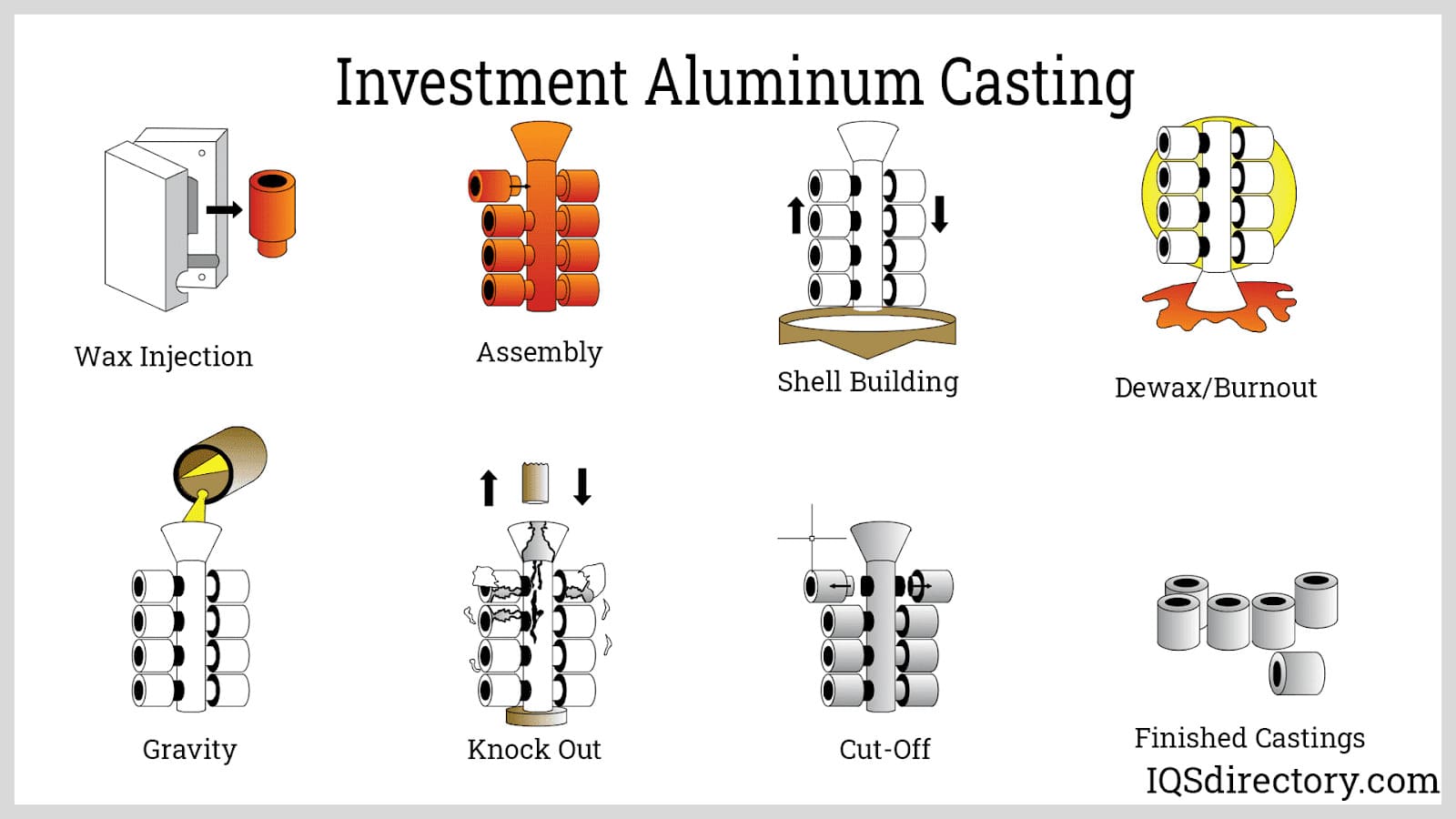Stahl Specialty Company Fundamentals Explained
Stahl Specialty Company Fundamentals Explained
Blog Article
The Of Stahl Specialty Company
Table of Contents8 Simple Techniques For Stahl Specialty CompanyWhat Does Stahl Specialty Company Mean?Stahl Specialty Company Fundamentals ExplainedStahl Specialty Company Things To Know Before You BuyRumored Buzz on Stahl Specialty Company
Chemical Contrast of Cast Aluminum Alloys Silicon promotes castability by minimizing the alloy's melting temperature level and improving fluidness during casting. In addition, silicon contributes to the alloy's toughness and use resistance, making it useful in applications where toughness is crucial, such as vehicle components and engine elements.It also improves the machinability of the alloy, making it less complicated to refine right into completed products. In this way, iron contributes to the overall workability of light weight aluminum alloys.
Manganese contributes to the toughness of light weight aluminum alloys and enhances workability. It is generally utilized in functioned aluminum items like sheets, extrusions, and accounts. The presence of manganese help in the alloy's formability and resistance to splitting during construction processes. Magnesium is a light-weight component that supplies toughness and effect resistance to light weight aluminum alloys.
Zinc enhances the castability of light weight aluminum alloys and assists regulate the solidification procedure during spreading. It boosts the alloy's toughness and solidity.
Stahl Specialty Company - Truths
Because aluminum-silicon alloys have good casting properties, high gas residential properties, easy processes, and superb corrosion resistance, aluminum-silicon alloys are most frequently utilized in the die-casting industry at home and abroad. At the same time, aluminum-silicon alloys are likewise fairly very early and widely identified alloys developed and used in die-casting. After continuous research study and renovation, a lot of the existing worldwide mainstream aluminum-silicon alloys have been wrapped up and are nothing more than A356, A360, A380, ADC12, B390, and A413.
The key thermal conductivity, tensile strength, yield toughness, and elongation vary. Select ideal resources according to the efficiency of the target item produced. Amongst the above alloys, A356 has the greatest thermal conductivity, and A380 and ADC12 have the lowest. The tensile restriction is the opposite. A360 has the most effective return strength and the highest possible prolongation rate.

Everything about Stahl Specialty Company
In accuracy spreading, 6063 is well-suited for applications where detailed geometries and premium surface finishes are vital. Examples include telecommunication enclosures, where the alloy's remarkable formability permits smooth and cosmetically pleasing layouts while keeping architectural stability. Likewise, in the Illumination Solutions industry, precision-cast 6063 components create stylish and effective lights components that require intricate shapes and excellent thermal performance.
(https://www.pinterest.com/pin/1108589264525265586)
The A360 exhibits premium prolongation, making it perfect for complex and thin-walled components. In accuracy spreading applications, A360 is well-suited for industries such as Consumer Electronic Devices, Telecommunication, and Power Tools.

In accuracy casting, aluminum 413 beams in the Customer Electronic Devices and Power Tools sectors. This alloy's remarkable deterioration resistance makes it an exceptional option for exterior applications, ensuring durable, resilient items in the pointed out sectors.
How Stahl Specialty Company can Save You Time, Stress, and Money.
The aluminum alloy you select will considerably affect both the casting websites process and the residential or commercial properties of the last item. Since of this, you must make your choice carefully and take an enlightened strategy.
Determining one of the most appropriate light weight aluminum alloy for your application will mean weighing a wide variety of attributes. These comparative alloy qualities adhere to the North American Pass Away Spreading Organization's guidelines, and we have actually divided them into 2 classifications. aluminum foundry. The initial classification addresses alloy qualities that influence the production process. The 2nd covers qualities affecting the residential or commercial properties of the end product.
The alloy you select for die spreading straight impacts numerous facets of the spreading procedure, like exactly how simple the alloy is to deal with and if it is susceptible to casting issues. Warm cracking, also called solidification cracking, is a typical die spreading problem for light weight aluminum alloys that can result in interior or surface-level rips or splits.
Facts About Stahl Specialty Company Uncovered
Particular light weight aluminum alloys are extra prone to hot cracking than others, and your option ought to consider this. Another common defect located in the die casting of light weight aluminum is pass away soldering, which is when the cast adheres to the die walls and makes ejection tough. It can damage both the cast and the die, so you need to look for alloys with high anti-soldering homes.
Deterioration resistance, which is currently a noteworthy attribute of aluminum, can vary considerably from alloy to alloy and is an essential particular to consider depending on the ecological problems your product will be exposed to. Use resistance is one more property typically looked for in light weight aluminum items and can differentiate some alloys.
Report this page